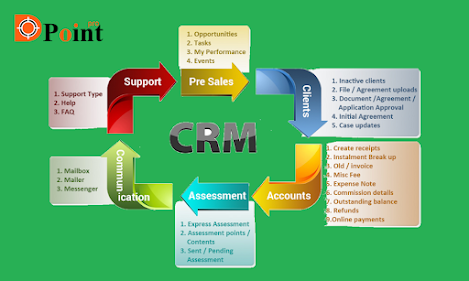It would help if you considered using a CRM system to enhance your business’s customer service efforts. These systems can help you track your customers’ behavior and preferences while providing a 360-degree view of every contact. You can also integrate your CRM with other tools, such as marketing automation and customer service systems.
Workflow automation
CRM workflow automation tools help companies manage their customer relationships. These tools can automate manual tasks and improve the employee experience. Creating a customized workflow that meets business needs and delivers on desired goals can significantly impact a company’s bottom line.
Using a CRM for workflow automation increases performance and productivity and reduces the number of manual tasks that sales and marketing teams have to handle. CRMs can also alert salespeople to issues and help salespeople determine how to respond to customers.
A CRM system can also be used to track the performance of email messages. Automated data monitoring can help you keep up with lead statuses and remind you when to follow up. You can also set up filters to dig deeper into your data.
AI tools
Artificial Intelligence (AI) tools in CRM systems help sales and marketing teams to accelerate content production and provide personalized experiences. AI can detect patterns in customer behavior and analyze customer feedback. It can also identify red flags and suggest solutions to customer issues.
AI-enabled CRM combines data from multiple sources, providing an integrated view of customer interactions. This helps businesses to reduce redundancy and gain actionable recommendations. A visual dashboard lets managers understand how the external environment is changing and allow them to make intelligent decisions.
AI-powered CRM tools enable businesses to improve their bottom line, improve engagement, and increase conversion rates. The systems also help sales reps to identify better buyer intent and the impact of their actions on the pipeline.
360-degree view for every contact
When you work with customer relations, you often need a 360-degree view of your customer. While this information can be challenging to track, a CRM system can help you get it.
A 360-degree view can make the entire process easier and more efficient. It allows you to navigate and share information with your team quickly. This can help you create a better customer experience, which will lead to higher retention.
You can also use a 360-degree view of your customer to make more strategic decisions. For example, if you notice that a particular customer is not converting to a paying customer, you can use the data to understand their needs better. Once you know their needs, you can develop products and services that meet their unique needs.
Integrations with marketing automation and customer service systems
Integrating customer relationship management (CRM) software and marketing automation tools can improve your sales and marketing efforts. You can optimize one-on-one client interactions, streamline processes, and earn a higher ROI.
A CRM system helps you manage your contact database, track leads, and report on pipeline status. It also automates repetitive sales tasks. In addition, marketing automation can help you find promising prospects, schedule automated emails, and segment recipients based on preferences.
The best way to use the technology is to synchronize your marketing and sales teams so that each can work towards the same goal. For example, set up CRM alerts to remind your sales reps of upcoming important dates. When the same is done for automated marketing, you can easily customize user experiences based on demographics, past interactions, and more.
Case studies of CRM success stories
To be successful, companies should invest in an innovative CRM systems. They enable businesses to hone their internal processes, manage deals, and increase sales. There are plenty of case studies out there that illustrate how to use this technology. The following three examples show how a company grew by improving its customer relationship.
Unilever, the leading marketer of personal care products, needed to improve its customer service center’s productivity. To do so, they hired a consulting firm. It quoted them $20 million for a new CRM tool, but the CIO felt the price was too high. Instead, the company decided to go with a less expensive solution.
Coca-Cola Germany, one of the world’s biggest producers of soft drinks, is a significant user of Salesforce. This system allows the company to deal with complaints and meet its targets. With Salesforce, the company’s customer service department is happy and satisfied.

